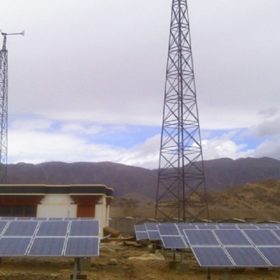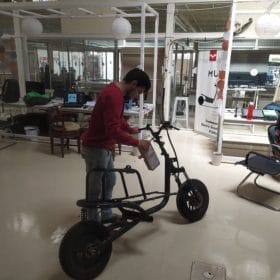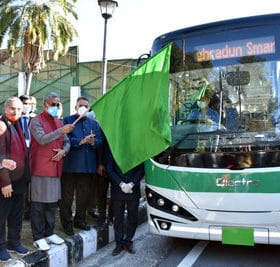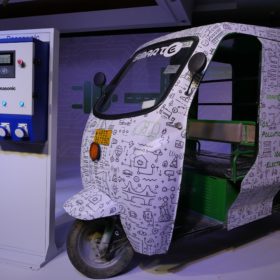EV maker Euler Motors and energy service firm Smart Joules raise funding from ADB Ventures
Asian Development Bank’s new venture arm ADB Ventures, which invests in technology startups disrupting traditional sectors in the Asia Pacific, has made its first investments into the Indian startups Euler Motors and Smart Joules.
Electric car maker Triton-EV registers India office
The US-headquartered company has registered its Indian arm by the name of Triton Electric Vehicles India in New Delhi as it plans to capture the nation’s growing EV market. It is also in discussion with a few states to set up a factory.
Electric vehicle transition presents US$266-billion investment opportunity this decade
A new report by government thinktank NITI Aayog and Rocky Mountain Institute (RMI) identifies financing as one of the hurdles for India’s electric mobility transition. It proposes solutions to lower the cost and increase finance for electric vehicles in the nation.
Amplus Solar launches innovation challenge for clean energy start-ups
Applications are invited from start-ups with ready-to-deploy solutions in areas like distributed solar, Internet of Things (IoT) applications in energy, battery storage and electric mobility. Winners will be supported through seed capital to scale up.
Shell-backed smart EV startup raises additional seed funding
The Bengaluru-based TresMoto is developing a range of smart, electric two-wheelers designed exclusively for delivery fleet usage with artificial intelligence-driven remote diagnostics and detachable batteries.
Uttarakhand rolls out electric bus service
The hill state in northern India has added the electric bus footprint with the service flagged off in the capital city Dehradun. The state government plans to start 30 such eco-friendly electric buses in this financial year. The buses, supplied by Olectra Greentech, will run in Dehradun, Mussoorie, Rishikesh and Haridwar.
India’s path away from climate disaster lies in the rapid growth of renewable power
The nation is already firmly positioned to lead the world in the clean energy revolution. Consolidating this position would unlock significant economic growth and competitiveness by attracting domestic and foreign investment, creating jobs, and improving public health.
The future of cars is electric – but how soon is this future?
According to a new report by BloombergNEF, 58% of global passenger vehicle sales in 2040 will come from electric vehicles, yet they will make up less than 33% of all cars on the road.
Electric vehicle adoption in India will be led by three-wheelers
Electric vehicles will account for 65-75% of new three-wheeler (3W) sales by 2030. Intra-city transport buses will see 25-40% EV penetration and two-wheelers 25-35%. In four-wheeler passenger vehicles, the market will be driven by shared mobility, while just 10-15% of new car sales for personal mobility will be electric.
Installers sought for 1,000 EV charging stations nationwide
Contractors will be required to identify sites and develop, operate and maintain interoperable electric chargers in more than 75 cities.














